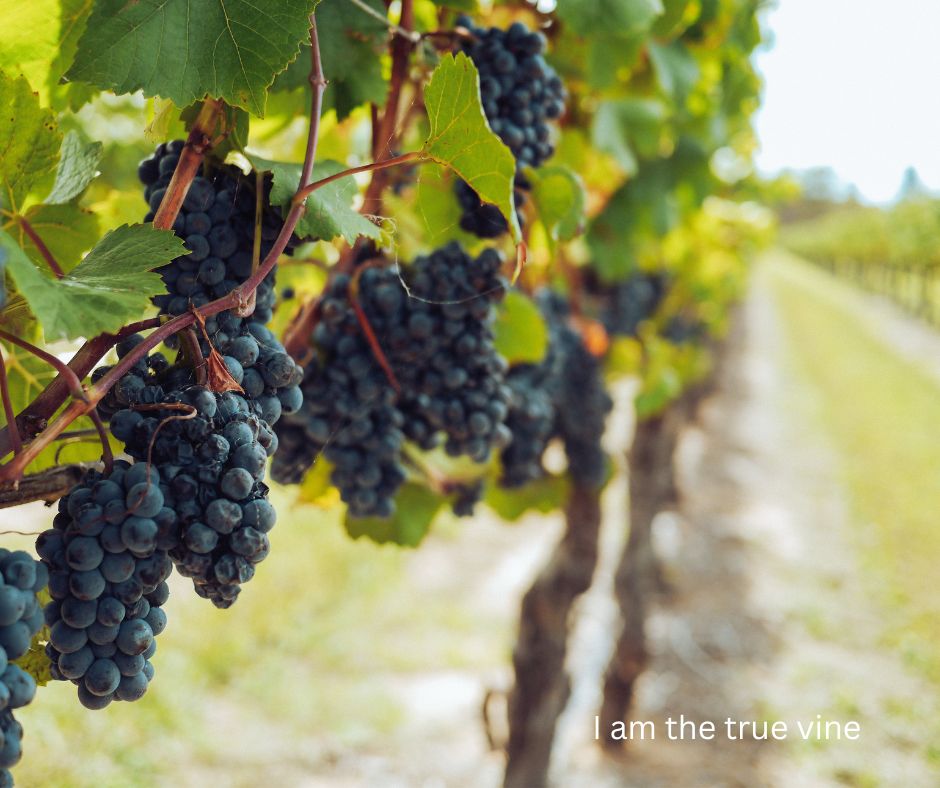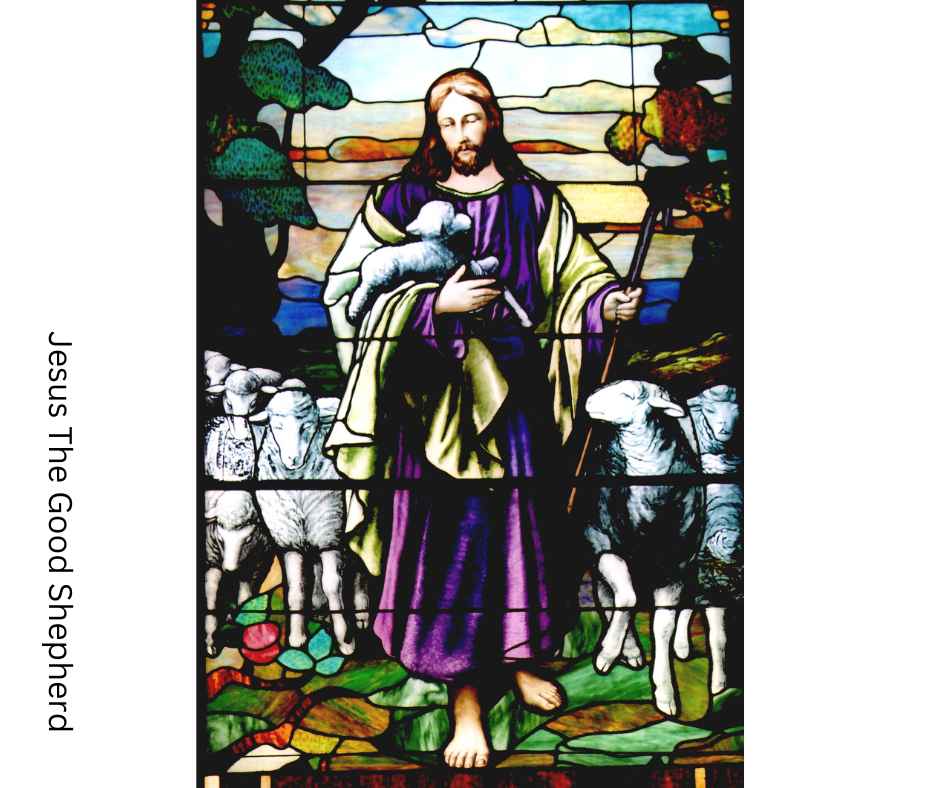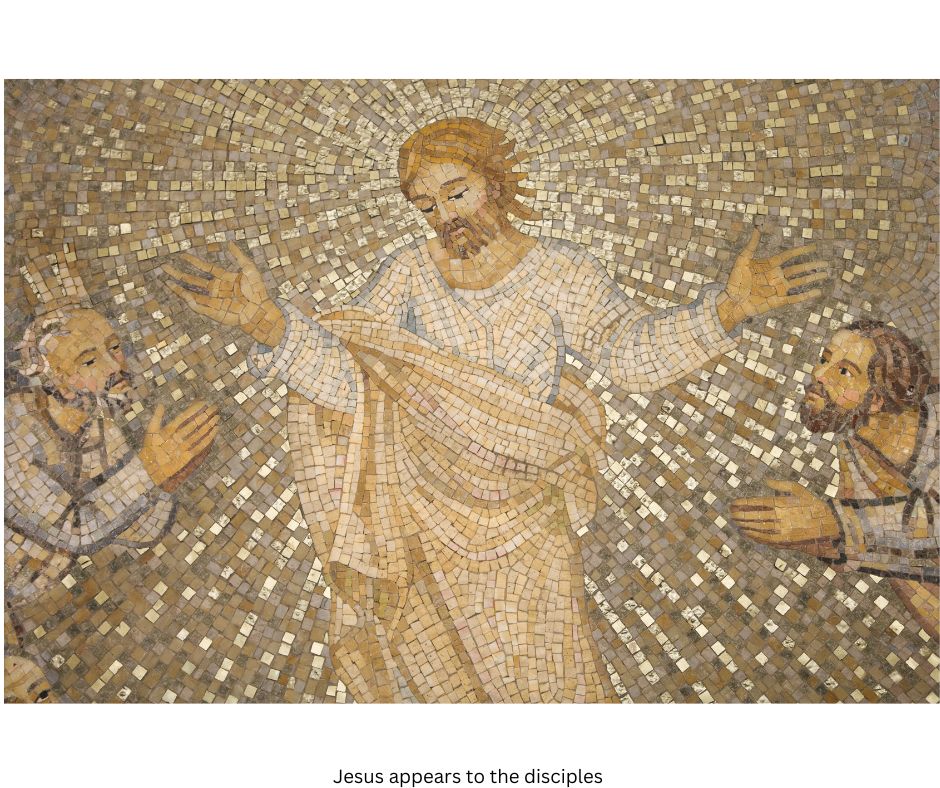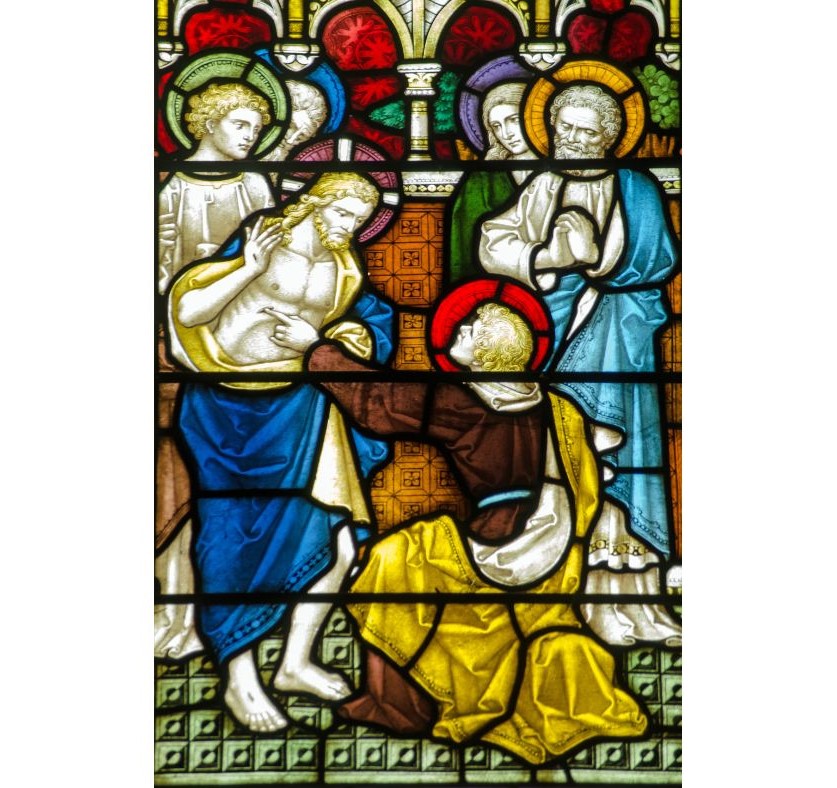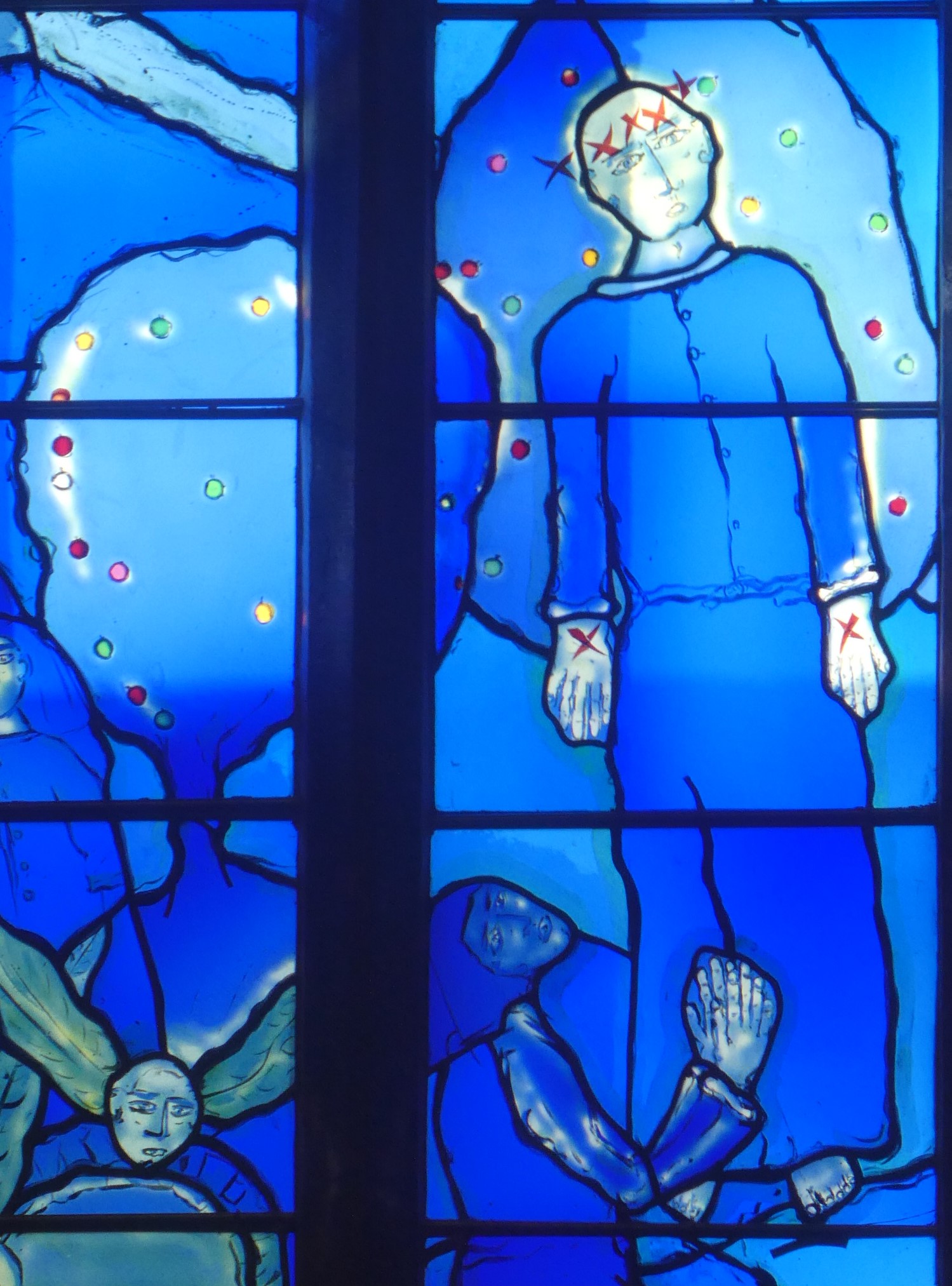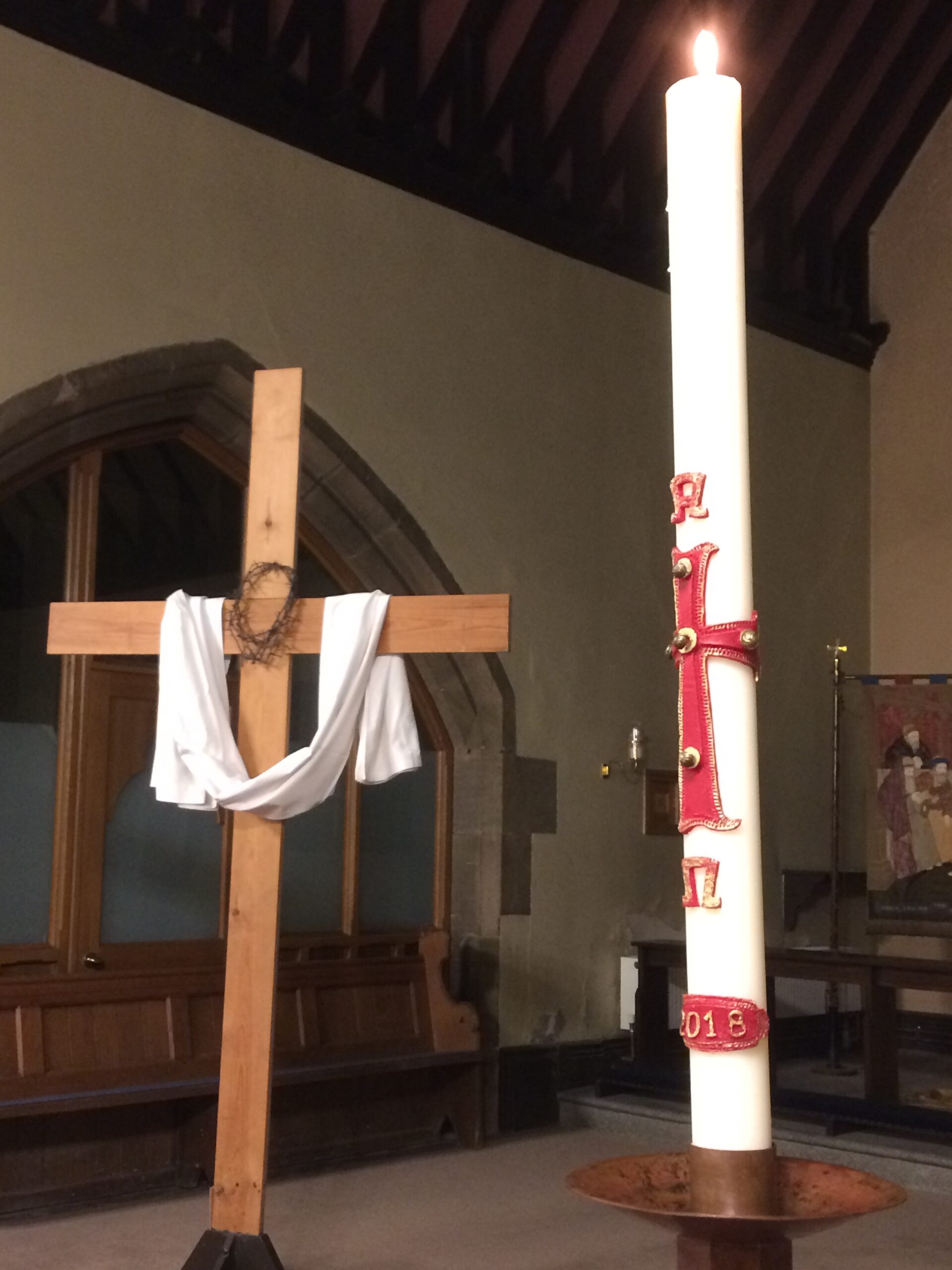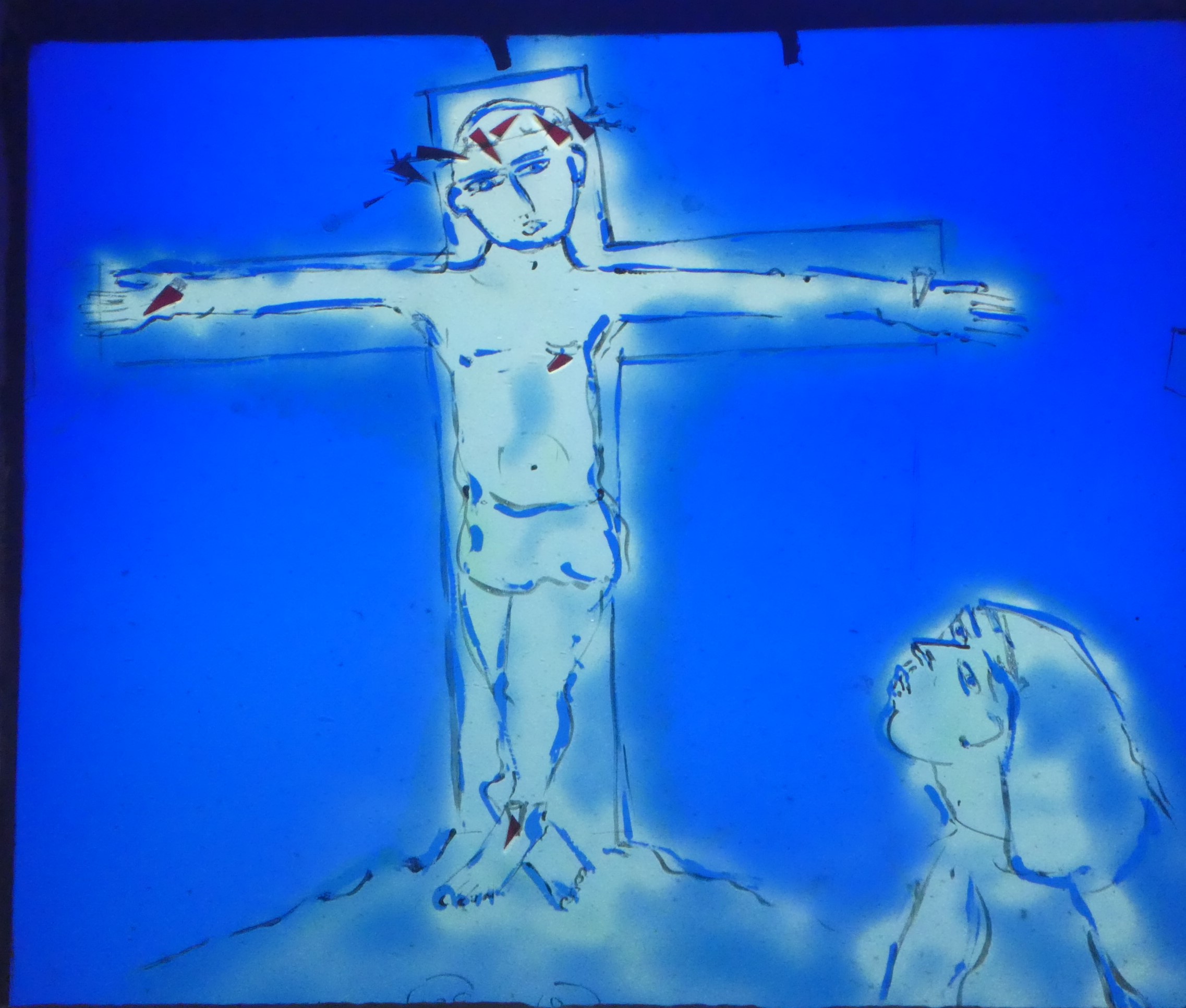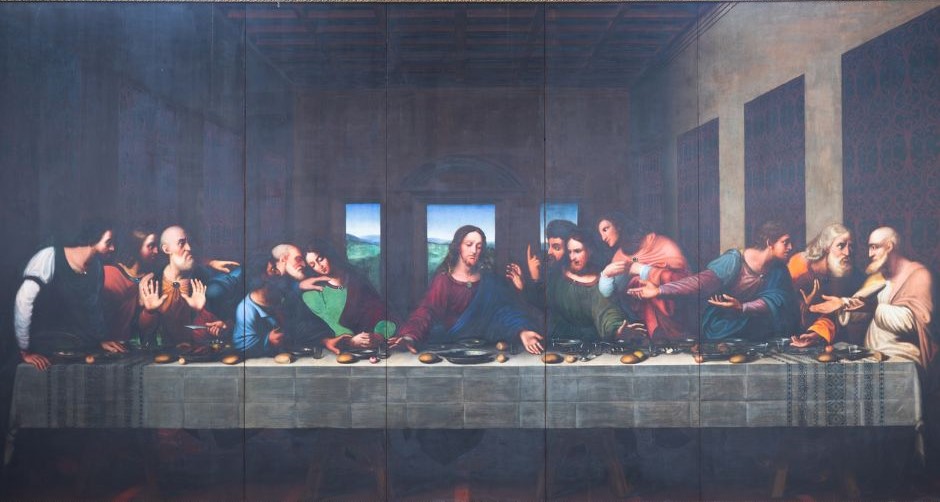
Watch this week's service on YouTube
Download the order of service here: 24 05 12 Seventh Sunday of Easter Eucharist
Read this week's Church News
The Readings
Acts 1.15-17
In those days Peter stood up among the believers (together the crowd numbered about one hundred and twenty people) and said, ‘Friends, the scripture had to be fulfilled, which the Holy Spirit through David foretold concerning Judas, who became a guide for those who arrested Jesus— for he was numbered among us and was allotted his share in this ministry.’
Acts 1.21-26
So one of the men who have accompanied us throughout the time that the Lord Jesus went in and out among us, beginning from the baptism of John until the day when he was taken up from us—one of these must become a witness with us to his resurrection.’ So they proposed two, Joseph called Barsabbas, who was also known as Justus, and Matthias. Then they prayed and said, ‘Lord, you know everyone’s heart. Show us which one of these two you have chosen to take the place in this ministry and apostleship from which Judas turned aside to go to his own place.’ And they cast lots for them, and the lot fell on Matthias; and he was added to the eleven apostles.
John 15.26-27
‘When the Advocate comes, whom I will send to you from the Father, the Spirit of truth who comes from the Father, he will testify on my behalf. You also are to testify because you have been with me from the beginning.
John 16.4b-15
‘I did not say these things to you from the beginning, because I was with you. But now I am going to him who sent me; yet none of you asks me, “Where are you going?” But because I have said these things to you, sorrow has filled your hearts. Nevertheless, I tell you the truth: it is to your advantage that I go away, for if I do not go away, the Advocate will not come to you; but if I go, I will send him to you. And when he comes, he will prove the world wrong about sin and righteousness and judgement: about sin, because they do not believe in me; about righteousness, because I am going to the Father and you will see me no longer; about judgement, because the ruler of this world has been condemned.
‘I still have many things to say to you, but you cannot bear them now. When the Spirit of truth comes, he will guide you into all the truth; for he will not speak on his own, but will speak whatever he hears, and he will declare to you the things that are to come. He will glorify me, because he will take what is mine and declare it to you. All that the Father has is mine. For this reason I said that he will take what is mine and declare it to you.
Scripture Quotations are from: New Revised Standard Version Bible: Anglicized Edition, copyright © 1989, 1995 National Council of the Churches of Christ in the United States of America. Used by permission. All rights reserved worldwide. http://nrsvbibles.org
The Sermon
By David, Reader at St Mary's.
How do we pick our Bible readings for each service? It’s a fair question, though not one I’ve often been asked. Sometimes as preachers you sit down with the readings to prepare a sermon and wonder why this reading at this point in the church’s year? Less often, you think why this reading at all?
So, how do we pick our Bible readings for each service? At St Mary’s we follow what’s called a lectionary. Which is a fancy word for a list of readings from the bible. The one we use is produced centrally by the Church of England. It’s designed specifically for use in public acts of worship and has three years’ worth of readings for every day of the week. Not all of the bible is included. Not all of the bible is useful or appropriate for public preaching.
When I sat down for this service I had one of those, why this reading at this point in the church’s year, moments.
Today is a slightly strange Sunday. It falls between Ascension Day, which took place on Thursday and marks Jesus’ return to the Father, and the feast of Pentecost, next Sunday, which celebrates the coming of the promised Holy Spirit on the disciples.
So today is an in between Sunday, when we have followed the story of Jesus’ earthly ministry through from the events of his birth at Christmas, some stories of his ministry, his temptation and his death and resurrection.
Imagine you’re writing a lectionary. How do you pick readings for this Sunday? Is there a section of the bible that mentions this time between Jesus’ Ascension and the coming of the Holy Spirit?
Yes, but only one short section, the second part of chapter one of the Acts of the Apostles. We had some of it as our first reading, where Matthias is chosen to replace Judas. The work of 12 cannot be done by 11 so a replacement for Judas is needed to cover his allotted share in the apostolic ministry. This verse is clearly taken to heart by the Church of England as, despite all its present restructuring, I’m not aware of there ever being a conversation about reducing the number of Bishops.
We have one reading for this Sunday. Good, how do we pick a Gospel reading?
It’s tricky.
The Gospels cover Jesus’ incarnate life, from being the Word made flesh, to his Ascension. How do we source a text appropriate for this in between time, before the coming of the Holy Spirit?
I’m not sure I would have a good answer.
Thankfully wiser heads than mine are on the case.
On this Sunday in all three years of the lectionary we have passages drawn from John chapter 17, the middle section of which we heard this morning. It’s a bit weird to break it up, it’s best read as a whole, and I encourage you to do so.
The entire passage is Jesus praying to the Father just before his betrayal and arrest. It can appear to be quite a rambling prayer, which is helpful for us to remember. Sometimes we can be worried about how we pray. We can think we have to do it in a particular way, or use certain words. This passage is welcome reminder that, particularly in times of stress, how we pray privately isn’t something we are going to be judged on by God.
So why this passage on this Sunday? As you read it through the deep, communion between God the Father and Jesus, God the Son, becomes clear. There is a constant giving and receiving described between these two persons of the trinity. “They were yours, and you gave them to me”, “All mine are yours, and yours are mine” and “glorify your Son so that the Son may glorify you”.
This communion exists between all three persons of trinity, Father, Son and Spirit, not just Father and Son. The passage uses Jesus’ prayer to the Father to try and illustrate, as best can be done in limited human language, an understanding of this communion. This is done as a prelude to the feast of Pentecost to point us to the relationship between Father, Son and Spirit. This is why we have sections from this passage on this particular Sunday each year.
Beyond this, Jesus’ words show that we are drawn into this perfect communion with God. Jesus prays in verse 21 “As you, Father, are in me and I am in you, may they also be in us”. They are drawn into relationship with the whole trinity.
Who is this they, who are drawn into communion with God? Is it the 12 apostles? The original disciples? The early church? Yes, but not just those. In verse 21 Jesus says “I ask not only on behalf of these, but also on behalf of those who will believe in me through their word”.
A relationship with God, communion with Father, Son and Spirit, is open to all. Even those who pick Bible readings.
The Prayers
In this Christian Aid Week, we pray for God to fill us with his Spirit.
Generous God,
We thank you for the breath of your Holy Spirit,
God we are thankful for your love: love that changes us, turns our priorities upside down, and yet somehow makes us more fully ourselves.
We offer our gratitude for those who have shown us tenderness, care and compassion;
Those who have seen us through troubled times and brought us hope.
We pray for those we love
And for those we have failed to love.
We hold in mind people around the world who know what it is to be treated as less than human.
May we work together to uphold the dignity of every human being, so that no one feels forgotten.
Lord, come to bless us
and fill us with your Spirit.
Generous God,
we thank you for the power of your Holy Spirit.
For those who inspire us with their strength, courage and perseverance.
We pray for people around the world brought to the brink by extreme poverty,
struggling to survive without sufficient food, clean water, or access to healthcare.
Fill us with a fierce determination to end the outrage of poverty.
May we hear the cries of those who are excluded from power.
May we speak up with them for a more equal and just world.
Lord, come to bless us
and fill us with your Spirit.
Generous God,
We thank you for the peace of your Holy Spirit.
God we are thankful for peacemakers and healers.
We pray for all those who are reaching across divisions and acting to end violent conflict.
May political leaders use their power wisely to further the cause of peace.
We pray especially for …
Peace in the Middle East
An end to the war in Ukraine
Those affected by conflict in Sudan
Ongoing peace-making work in Burundi
We remember with sorrow the lives lost in conflict.
Lord, come to bless us
and fill us with your Spirit.
We thank you for the fruit of your Holy Spirit.
For love in action, for the cake-bakers, the runners, the envelope-collectors.
We are grateful for those who give their time, energy and resources to sponsored walks, craft sales, sing-a-thons, cycles, swims, and to all kinds of fundraising challenges.
We pray that each of us may recognise the gifts we have to share,
And that we may see too the richness of our neighbour’s gifts and talents.
Help us to remember that ending poverty is not just about the things money can buy:
It’s also about the joyful living that you desire for each of us
May we all be free to live life joyfully, in all its fullness.
Lord, come to bless us
and fill us with your Spirit.
Generous God,
We thank you for the healing of your Holy Spirit.
God we are thankful that you offer comfort to us in our sorrows.
We give thanks that when everything else around us seems to crumble, you promise us that your love will remain solid and steadfast.
We pray for others known to us who are suffering.
Offering them to God in a moment of silence
We pray for those who have died or lost someone they love.
We offer them to God in a moment of silence
May those who grieve know your peace.
Lord, come to bless us
and fill us with your Spirit.
Common Worship: Times and Seasons, material from which is used here is copyright (c) 2010 The Archbishops' Council



